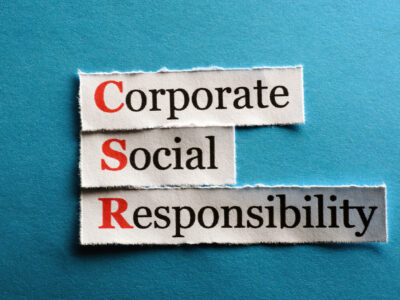What do employees value most in a company? What benefits do they value most? What do employees look for in a company? What makes them want to leave?
When you prioritize questions like these, you ensure that the foundation of your business—the employees—is stable and healthy. Keeping them satisfied and happy with their jobs is essential to building a strong and devoted team. Without employees, you have no one to make products, sell services, run stores, or help customers. Still, many business leaders fail to meet their employees’ needs and suffer the consequences of high turnover.
But, really, what do employees value most? This article highlights what employees look for in modern workplaces and, more importantly, why you should care.
What Are Values At Work?
Workplace values are the core principles and beliefs that influence your employees. These values guide their behaviors, decision-making, and interactions with your company. They represent what’s most important to your employees, thus shaping your company culture.
Because these values influence your company culture, they also affect how your employees:
- Treat each other
- Respond to their leaders
- Approach their jobs
- Handle challenges
- Decide whether or not to stay with your company
In other words, they’re much like personal values. For example, you might value honesty, respect, and authenticity in your friends. If someone you know begins lying to you, disrespecting you, and pretending to be someone they’re not, they’re no longer aligned with what you value in your friends. In this case, you might distance yourself or end the friendship.
We’ll go into more detail about why you should care about what your employees value in greater detail later in the article. For now, just keep in mind that people often prioritize their job values the same way they care about personal values.
Or, better yet, what do you value most in a company?
What Do Employees Value Most? Top 5 Factors
You’re already on the right track since you’ve (likely) searched for answers to one of the most important questions a leader can ask: What do employees value most? So, before we look at the benefits of listening to your employees, let’s answer that fundamental question.
Some of these are obvious, while others can be harder to see. Regardless, here are the top 5 things employees value at work:
1. Competitive Salary and Benefits
What do employees value most? More than anything else, they want to be paid enough to live comfortably and receive the benefits they need to maintain their health and life.
Seriously. Nothing else matters if you fail to meet this need.
What good are strong workplace relationships if you can’t cover rent and other essential bills? Why does job stability matter if you don’t make enough to pay for emergency expenses? Who cares about recognition if you don’t have enough extra money to enjoy life at least a little? What’s the point of insurance if it barely covers the basics?
Whether you like it or not, you need to pay your employees competitive rates and give them a good benefits package. If you don’t, they’ll find employment elsewhere.
Not convinced? Check out the statistics. For example, here are some numbers from a recent FlexJobs study:
- 59% of people who quit their jobs did so because of low pay
- 31% of people who quit their jobs did so because of poor benefits
You can try anything and everything to make employees happier, but if you don’t raise their wages and give them better benefits, your employees will leave for companies that pay better.
Workers are demanding higher pay to keep up with the ever-increasing cost of living. For example, the average household expenses in the US are currently at $6,440 per month. That’s up from $6,081 in 2022. Housing alone costs $2,120 per month on average.
It should come as no surprise, then, that businesses must meet the financial demands of their employees, even if it means accepting lower profits in the short term.
Before we move on, what benefits do employees value most? Here’s what a recent OnPay study found:
- Health insurance
- Paid time off
- Retirement benefits
- Vision insurance
- Dental insurance
- Parental leave
- Life insurance
- HSA and FSA accounts
Today’s employees also appreciate benefits that help with debt pay-off, financial security, continuing education, mental health, and professional development.
2. Work-Life Balance
Today’s employees value their work-life balance. To continue with our by-the-numbers approach, the FlexJobs study we referenced earlier found that 49% of employees who quit did so because of a poor work-life balance.
Getting paid well is great, but what’s the point if you don’t have the time to actually live and enjoy your life? Employees need to be able to have a healthy balance between their work and personal lives, and a big part of that responsibility is on the employer.
Here are some ways companies can improve their employees’ work-life balance:
- Better work options: Providing remote and hybrid work options to give them more flexibility for personal needs, responsibilities, and preferences.
- Better hours: Focusing on output instead of hours by letting them leave early or stay late as they feel necessary to complete their work, giving them more flexibility.
- Better time off: Providing more or even unlimited paid time off so they can take the breaks needed for their mental health.
- Better balance: Forcing employees to use their time off each year by limiting how much time off rolls over into the following year.
- Less time at work: Moving to a four-day work week with fewer hours per week while paying employees the same salary.
This may sound counterintuitive to some, but these changes have been shown to have many positive impacts. They can improve productivity, work-life balance, job satisfaction, retention, morale, and so much more. For example, when employees have a four-day workweek, they’re more productive than when they work a five-day workweek.
It should come as no surprise, then, that 56 of 60 employers who took part in a pilot program testing a four-day workweek planned to continue the four-day workweek.
3. Opportunities for Growth and Development
Surprise, surprise—another answer to “What do employees value most?” is having opportunities for growth and development. Once again, the numbers back it up—FlexJobs found that 37% of people who quit their jobs did so because of a lack of opportunities.
In other words, your employees don’t want to feel like they’re in a dead-end job.
Instead, they want opportunities to grow, develop their skills, and move up in the company. And as an employer and leader, it’s your responsibility to help upskill employees so they can reach their full potential.
The good news is that this is one of the easier demands to address in most cases. Here are some simple ways to help your employees grow and provide the opportunities they’re seeking:
- Promote from within
- Provide paid training, classes, and skill-sharing workshops
- Pay for further education
- Offer mentorship programs and job shadowing
- Provide leadership development programs
- Create cross-training opportunities
- Offer individual development programs
- Provide paid conference attendance
At TeamBonding, we have a wide variety of professional development programs that you can use to upskill your employees and meet their demands. Remember, if you take the time and effort to help your employees grow, it will pay dividends later. It’s hard to argue with better talent at your company!
4. Positive Work Culture and Relationships
This one is a little less obvious to some, but it’s growing more important with each passing year—employees want a good work culture. In fact, a whopping 62% of employees will quit a job because of a toxic work environment.
Think about it—we all know how draining full-time work can be, and it’s so much worse when you’re exposed to toxicity on a daily basis.
On the other hand, a positive work culture and good relationships make work much more enjoyable. Employees actually want to work in an environment where the people are positive and friendly.
This can be more difficult to address, though. How do you tackle an issue that’s spread across your entire company?
Sure, you might ask something like, “Hey, what do you value most in a job?” during an interview, and the potential employee might say, “Good company culture.” Then you might show them the ideals the company was founded on—balance, growth, integrity, etc—and they’re on board!
If you hire that person, they will look for those things in the office. They’ll feel betrayed if they encounter things like the following:
- Leaders who don’t value employee input
- Gossip and rumors running rampant
- Low morale
- Workplace bullying and abuse
- Unfair or poorly enforced company policies
- Narcissistic leadership
- High levels of burnout
- Lack of transparency and healthy communication
- Poor work-life balance
- Lack of empathy and compassion
One of the best ways to address work culture and relationships is with team building. Team building activities offer fun and rewarding ways to foster relationships and instill a positive workplace culture.
For example, our Team PechaKucha event is a fun way to build trust, camaraderie, communication skills, and a positive working environment. Likewise, Clean Water Connection can be a great opportunity to make a difference in the world while also helping your team develop teamwork skills.
Another thing that helps with this is leading by example. You and your leaders need to set a standard at the top level. If employees see their bosses happy, friendly, and communicative, they are going to do the same. Here are a few more things that help:
- Open door policies
- Clear communication channels
- Inclusive decision-making policies
- Employee rewards, recognition, and appreciation
5. Recognition and Appreciation
Speaking of that last one—employee rewards, recognition, and appreciation—that’s another big value for many employees.
As humans, we all want to feel appreciated and recognized for our hard work. Whether we’re on the bottom or top rung of the business ladder, we want to feel acknowledged and cared about.
This is one of the easiest things to address, too. Ensuring your team members are recognized and appreciated is something that you can easily work into your daily practices across your business.
It’s as simple as always thanking employees when they complete even the smallest task and taking time to congratulate them on their successes. You can also designate days every year for fun activities for your employees so they can take a break from work and chill out. You could even do employee recognition surveys with questions like the following:
- What types of awards and celebrations would you prefer to recognize your successes?
- What makes you feel valued as an employee?
- Are there any activities you’d like to participate in with colleagues?
- How would you prefer leaders show gratitude after a big project?
These answers can shed light on the things that matter to your teams. But really, it’s just about doing little things that show your appreciation for their work—luncheons, parties, awards, etc. These things add up over time and can make a huge difference.
What Are the Benefits of Listening to What Employees Want?
We promised to do more than offer the top five answers to “What do employees value most?” and we’re going to deliver on it! Here’s a quick recap of why you should care about what your employees want.
Retention
Retention is the number one benefit from a business perspective. You want your employees to stay with your company, develop their skills, and continue being important members of your team. Listening to them and meeting their needs is a fairly simple and proven way to increase retention.
The statistics we’ve highlighted back this up, too. Employees leave because they aren’t happy with one or multiple aspects of their job. And focusing on your employees and what they want can help you greatly improve your retention.
Job Satisfaction
Listening to your employees directly improves job satisfaction. When employees feel satisfied with their jobs, they’re more motivated, dedicated, and productive. They’ll also be more communicative and friendly in the workplace, leading to stronger relationships.
On the other hand, unsatisfied employees can cause a litany of problems. If they don’t leave, those employees will likely do lower-quality work at a slower rate.
Workplace Pride
Workplace pride might not sound like a big deal, but it’s actually pretty important. When your employee is proud to work at your company, they’re more likely to feel happy and satisfied with their job. They’ll believe in your company and be more likely to do everything they can to help it succeed.
Workplace pride also reduces employee turnover while making it easier to attract better talent. Why? Because employees who love their workplace often recommend it to others.

A Real-Life Example of Why Job Values Matter
In a recent episode of our Team Building Saves the World podcast, we spoke to Braxton Wood, Chief Career Mentor at Professional Pivots. He shared a compelling story that underscores why it’s so important to listen to, care about, and respect your employees’ values:
“I had a good friend who was a product manager at a tech company. The company was letting someone from his team go for purely arbitrary, superficial reasons—nothing related to performance or anything like that. The person being let go was the best person in that department, and my friend walked up to the director saying, ‘If you let him go, you’ll be saying goodbye to me too because this isn’t right.’
My friend ultimately lost his job over it, but he was fine with taking that risk. He stood by his personal core values and the company’s supposed core values, recognizing they were being violated. He told them, ‘If you’re going to exploit these core values and fire this person just because you don’t like them personally or whatever, then this isn’t the kind of company I want to work for.’”
Long story short, the company lost two highly skilled employees because the leadership decided they didn’t care about the company’s values or those of their staff.
Focus On What Your Employees Value
So, what do employees value most? An employer who genuinely cares about their happiness and needs.
As a business owner or leader, there’s nothing more important than your employees. You need to understand what they value most and provide those things for them. If you do this, you’ll have a team of loyal, dedicated, hardworking employees who propel your business to new heights.
At TeamBonding, we’ve spent over two decades helping companies create thriving workplaces. We have a huge selection of events and activities to help meet the many needs of your team members, from fostering a positive work culture to supporting professional growth and work-life balance.
Ready to prioritize your company’s success? Get in touch with us today and start building a workplace that inspires your employees tomorrow.


















